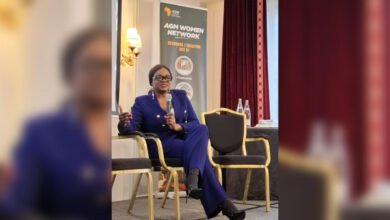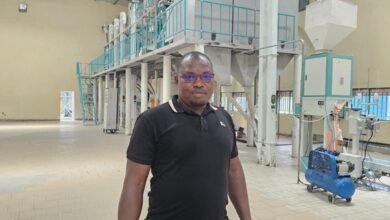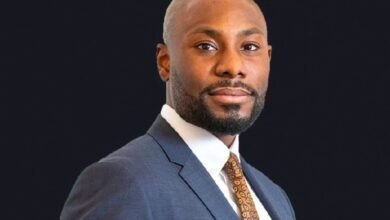Benin: Digital technology accelerates inclusive education at University of Abomey-Calavi
Thanks to e-learning, the University of Abomey-Calavi (UAC) provides its courses to a larger number of students. The campus is becoming a leader in this area in French-speaking Africa, even if efforts are still needed.
By Ulrich Viany in Cotonou
Read more : Benin: Digital technology accelerates inclusive education at University of Abomey-CalaviE-learning is making some happy at the University of Abomey-Calavi (UAC). Thanks to this tool, the campus can more easily provide its courses to a larger number of students, including those with disabilities. This policy makes the campus the most inclusive higher education institution in Benin. The UAC is the first and largest university in Benin, located in Abomey-Calavi, the country’s second most populous city north of Cotonou.
The digitalization of teaching is not a new concept or practice at the UAC. The journey began, among others, with the Francophone digital campus inaugurated in September 2002. The trend has grown as the years go by, especially in 2020 with the COVID-19 pandemic that has severely affected the business sectors in the world.
Courses and tutorials in video-conference mode are therefore provided to all, without exception, and intensified via the https://etudiant.bj/ platform launched on May 11, 2020. In addition, course materials are available online on the university’s website.
Beyond COVID-19, UAC has accelerated distance higher education due to the large gap between students and available infrastructure. « Last year, we crossed the threshold of 95,000 pre-registered students… Unfortunately, the educational infrastructure that we have, fails to accompany this large number of students and the staff too is not enough. Therefore, it is almost obvious that classroom conditions are difficult, » said Professor Patrick Houessou, Vice-Rector in charge of academic affairs of the UAC.
Today, e-learning has emerged as the perfect tool through which the campus accelerates inclusive education. Reaching many more targets is no longer an illusion at the UAC, which by its prowess is becoming the leader in e-learning in Francophone sub-Saharan Africa. The institution is indeed ranked 1st most digital university in Francophone Africa (116th in Africa and 2nd in French-speaking Africa in 2021) since January 2022, ahead of Cheick Anta Diop University of Senegal. The ranking is produced by Webometrics Ranking, which lists, every year, higher education institutions (by continent and globally) on the basis of their academic presence on the web and their digital services.
This rank occupied by the UAC is an additional source of motivation for the university authorities committed to transpose the 52 years of experience of the university on the Internet.
Difficulties despite success
Though access to courses becomes easier thanks to e-learning, it is not that simple in reality, due to several difficulties. The main one is the cost of the internet connection (about 2 euros per gigabyte for mobile phones). A budget that students in general find difficult to afford. For students with disabilities, these difficulties range from the lack of resources and infrastructure to course materials that are not suited for their type of disability.
« Accessing classes was really painful for those who didn’t have an android or an adapted computer. I have a classmate who is visually impaired and used to come to my house to take classes, » said Théophile Tawéma, president of the Association of Schoolchildren and Students with Disabilities of Benin (ASEHB), which was created in 1996 for the development of learners with disabilities. This grouping is composed of 220 members, 115 of whom are active). According to him, these are only summaries of courses in text format. Thanks to applications or audio reading software installed on smartphones or computers, they can follow the reading of course materials.
Each year, the Beninese government helps new students with disabilities by giving them, among other things, adapted laptops. Sixteen laptops were distributed in 2022. But this number does not yet cover all the needs. « The computers offered this year were given to students who obtained the Bac in 2018, » notes Théophile Tawéma who adds that « those who obtained the Bac in 2019, 2020 and 2021 are still waiting. He also hopes that adapted computers will be offered to people with a hearing disability.
Recently, two sign language translators, on duty at the Rectorate, have been working on campus activities, and the ASEHB would like the rectorate to hire more of them and assign them automatically to the fields of study where the need is felt. In addition, the ASEHB would like to see a way for these translators to be involved in courses by video-conferencing.
Commitments for better learning conditions
The authorities of the Abomey-Calavi campus are not unaware of the difficulties of students in general and those with disabilities in particular. The university « is working hard to solve them, because it is part of our projects and we are in the process of securing commitments from some partners to support us, » says Professor Patrick D. Y. Houessou.
But if things are moving slower regarding the digital inclusion of students with disabilities, it is because the university administration also faces some blockages. « To take care of people with disabilities, there is also a reality that should not be hidden, which is that we need the resources to implement a number of things. For example, visually impaired people need documents translated into Braille or enlarged. The equipment to do this is expensive. When you make a budget in this sense, you end up cutting things because of the economic resources available. So, the ideas are there but it is not always the fault of the university, on the contrary it makes the effort to do the best, « says the vice-rector.
The UAC and the Ministry of Digital and Digitization are currently working on projects and programs to strengthen e-learning on campus. « When these digitization initiatives are implemented, it is obvious that this also extends to the level of students with disabilities, » reassures Professor Patrick D. Y. Houessou. The latter states that the Rectorate has given firm instructions this year to ensure that already from registration, « we can better determine people with disabilities on campus and the types of disabilities present, to take stock and act accordingly. This will contribute to the success of the projects and programs in the pipeline.






